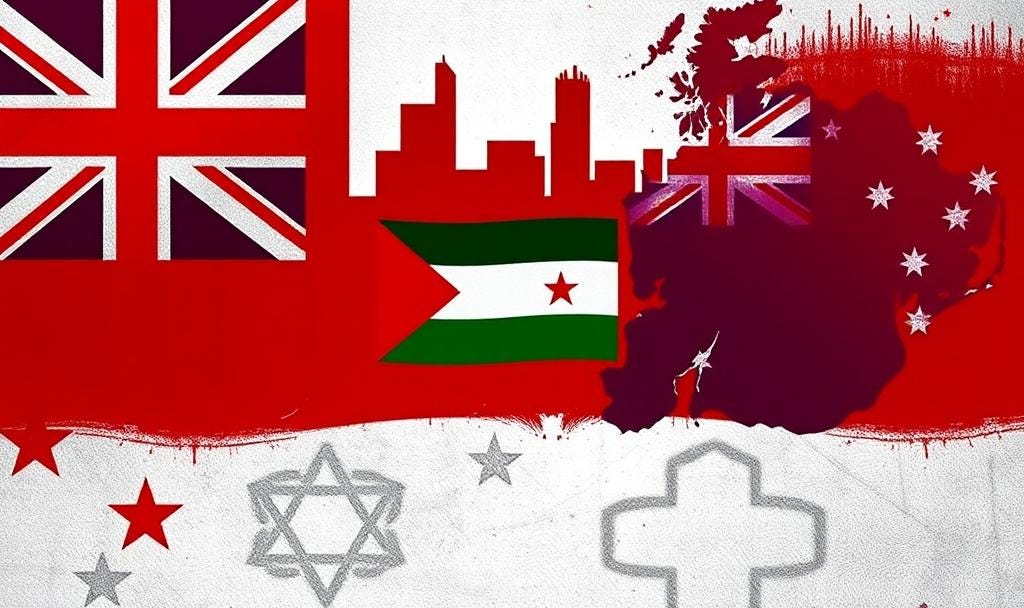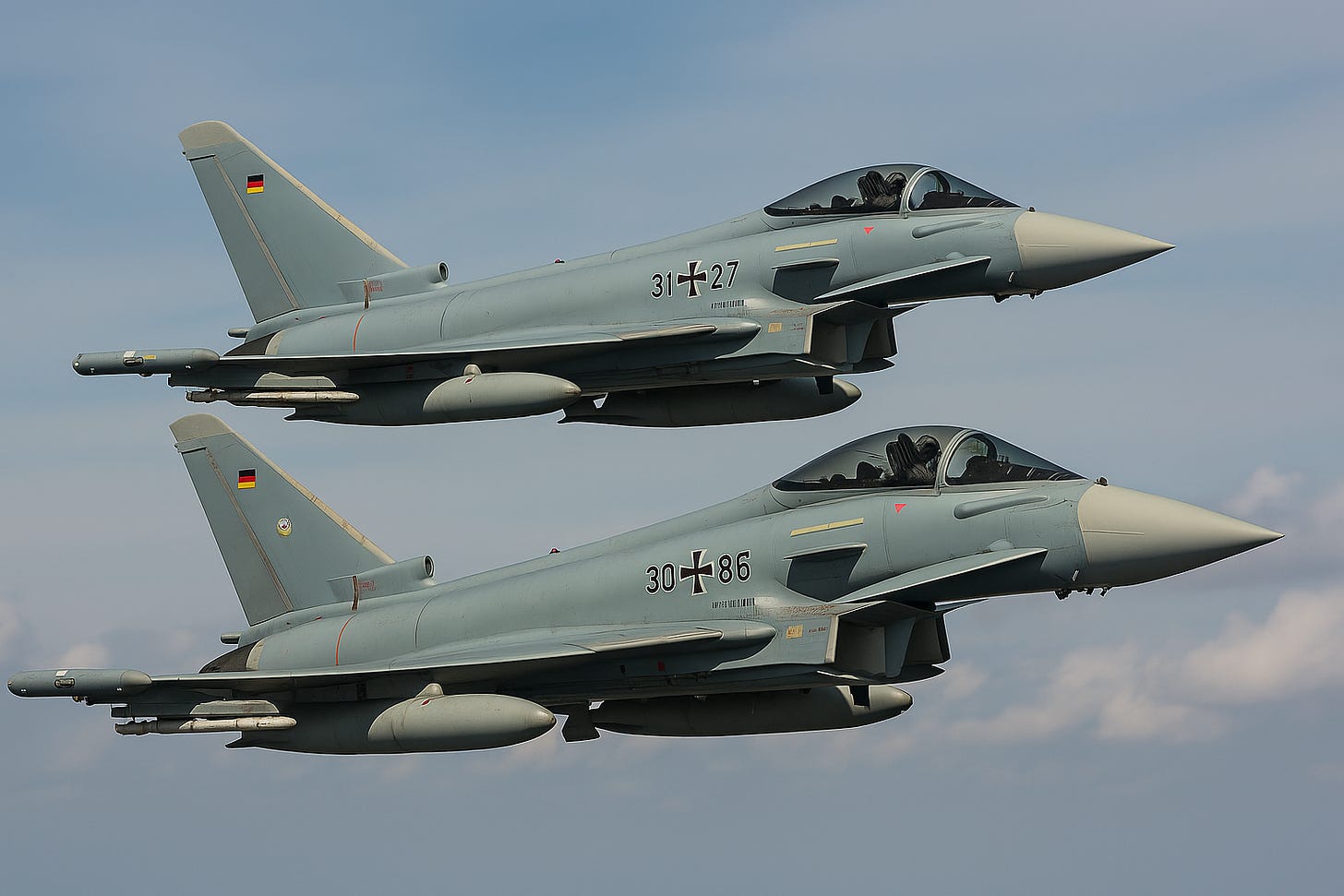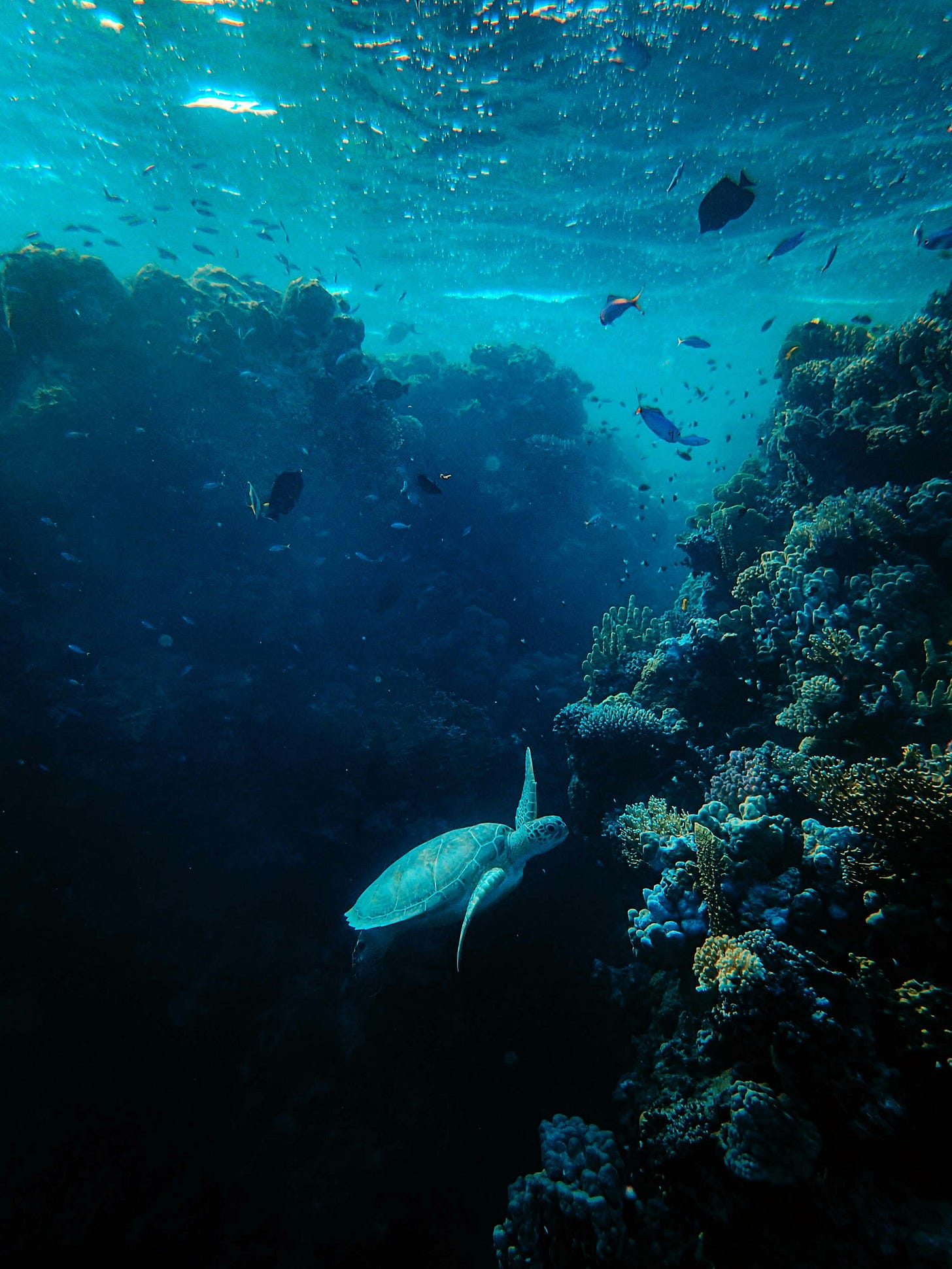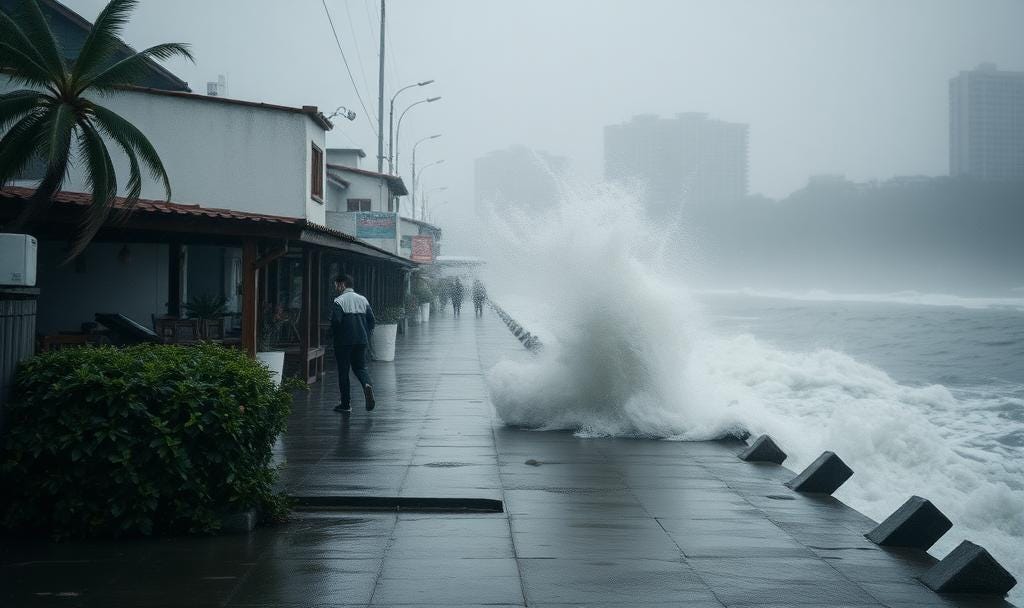10 Things Global News - 22nd September 2025
The news from around the world
Western Allies Recognise Palestinian State
Israeli Strikes Kill Civilians in Gaza and Lebanon
Syria’s Leader Returns To UN Stage After Six Decades
French Wealth Tax Plan Sparks Business Backlash
Germany, Sweden Intercept Russian Recon Plane
UN Urges Ceasefire After Deadly Strike in El-Fasher
High Seas Treaty Set To Take Effect In January
Ragasa Puts Hong Kong, Philippines On Alert
Kirk Funeral Blends Mourning And Mobilisation
Taliban Reject U.S. Bid To Retake Bagram Air Base
On this day ……
On this day in 1980, Solidarity, the Polish trade union group was formed in Gdansk. Originally led by Lech Walesa, an electrician by trade, Solidarity engaged in a wave of strikes in defiance of government decrees.
Thus was formed the first labor union in a Soviet bloc country.
Solidarity was forcibly suppressed by the Polish government only to re-emerge nine years later to become the first independent opposition party to participate in free elections in a Soviet bloc country since the 1940s. They were overwhelmingly successful in these elections winning 99 of 100 Senate seats and all 161 of the Sejm (lower house) seats that opposition parties were allowed to contest.
Britain, Canada, Australia and Portugal formally recognised a Palestinian state on Sunday, marking a decisive shift in Western foreign policy ahead of the UN General Assembly. British Prime Minister Keir Starmer framed the move as an attempt to preserve the prospect of a two-state solution, while his Canadian and Australian counterparts stressed that Palestinian aspirations could no longer be deferred. Portugal’s foreign minister said the step was consistent with a long-held commitment to peace through coexistence.
Palestinian leaders hailed the announcements as vital support for their struggle, while Hamas figures described them as validation of Palestinian rights. Israel responded angrily:
Prime Minister Benjamin Netanyahu warned that recognition rewarded terrorism and vowed no Palestinian state would be permitted west of the Jordan River. President Isaac Herzog said the decision harmed prospects for peace, and the Israeli foreign ministry condemned the move as destabilising. The recognition leaves the US increasingly isolated among Western powers.
Sources: New York Times, Le Monde
Israeli air strikes on Sunday killed at least 40 people in Gaza, including 19 women and children, as the military intensified efforts to seize Gaza City. A single strike on a residential block in the south of the city left 14 dead, while another hit Bureij refugee camp, killing eight.
More than half a million people have been displaced since late August, many fleeing on foot as Israel ordered residents to leave. Aid officials warn forced displacement and ongoing restrictions on relief supplies are worsening famine conditions.
The violence extended across the border when a drone strike in Lebanon killed five civilians, including three children and their father. Lebanon’s president condemned the attack as a breach of the ceasefire with Hezbollah. Israeli officials acknowledged civilian casualties but said the intended target was a Hezbollah militant. The strike drew sharp criticism from Lebanese leaders, who warned repeated violations could destabilise the country and undermine efforts to disarm the group.
Sources: The Guardian, PBS
Syrian President Ahmad al-Sharaa arrived in New York to attend the UN General Assembly, the first Syrian head of state to do so since 1967. The visit follows Bashar Assad’s ouster in December in an insurgent offensive led by al-Sharaa, ending nearly 14 years of civil war.
Al-Sharaa is likely to seek further sanctions relief as Syria rebuilds. He met U.S. President Donald Trump in May, who announced sanctions would be lifted; many were later waived, though the toughest measures under the 2019 Caesar Act require a congressional vote to remove.
Relations with Israel also loom large. Israel has seized a formerly UN-patrolled buffer zone in southern Syria and carried out airstrikes on Syrian military sites. Talks on a security deal aim to secure an Israeli withdrawal and a return to the 1974 disengagement; al-Sharaa said a deal could be days away, but Prime Minister Benjamin Netanyahu called it “a vision for the future.”
Sources: Associated Press, France 24
France’s Socialist Party is pressing for a “Zucman tax” on fortunes above €100m: a minimum 2% annual levy on all assets, including company shares and unrealised gains. Their votes are pivotal for Prime Minister Sébastien Lecornu in a hung parliament, sharpening pressure after two predecessors fell over spending plans. Leading executives denounced the plan, with Bernard Arnault calling it a threat to the economy and tech founders warning it is “communist”.
Support for taxing the ultra-rich is high, with an Ifop poll citing 86% approval and large protests demanding the wealthy pay more. Advocates say the levy could raise €15bn a year, though other economists estimate about €5bn. Critics argue it could force cash-poor founders to sell or borrow against stakes, and question its constitutionality given it targets roughly 1,800 people. Lecornu says he is open to “tax fairness” but urges caution over “professional assets”.
Sources: FT, The Times
Germany scrambled two Eurofighter jets on Sunday to investigate an unidentified aircraft flying without a plan or radio contact over the Baltic Sea. NATO ordered the quick-reaction alert, which identified the plane as a Russian IL-20M reconnaissance aircraft. After visual identification, German pilots handed the escort to Swedish NATO partners and returned to Rostock-Laage. Sweden said its fighters were identifying and monitoring the IL-20 in international airspace.
German Eurofighters
The interception came amid a series of recent incidents on NATO’s eastern flank. Estonia said three Russian MiG-31 jets violated its airspace for 12 minutes on Friday, prompting a request for Article 4 consultations and an emergency UN Security Council session. NATO and European governments condemned the incursion, while Russia denied it. Poland and Romania also reported drone intrusions this month, underscoring concerns about repeated airspace incidents.
Sources: Al Jazeera, NPR
The United Nations has demanded an immediate ceasefire in Sudan’s Darfur region after a drone attack on Friday killed more than 70 worshippers during dawn prayers at a mosque in El-Fasher. The strike, blamed on the Rapid Support Forces (RSF), was described as one of the bloodiest days since the city came under siege. UN officials warned that targeting places of worship may constitute war crimes and urged safe passage for civilians.
El-Fasher has been encircled for more than a year as RSF fighters try to capture the last government stronghold in Darfur. Hundreds of thousands remain trapped without food or medicine, while aid groups warn famine conditions are worsening.
Rights groups have pressed international envoys to prioritise lifting the siege, saying systematic shelling and mass killings amount to crimes against humanity. The UN Secretary-General called for both sides to resume negotiations and for global action to support Sudan’s civilians.
Sources: Al Jazeera, Sudan Tribute, UN News
A landmark treaty to protect international waters has cleared the threshold for ratification, meaning it will enter into force in January. Morocco and Sierra Leone became the 60th and 61st states to ratify, completing a process nearly two decades in the making. The agreement covers two-thirds of the world’s oceans, establishing legally binding rules to conserve biodiversity, create marine protected areas, and share benefits from genetic resources found at sea.
Photo by Francesco Ungaro on Unsplash
The treaty is seen as crucial to meeting the global target of protecting 30 per cent of land and sea by 2030. It comes amid mounting concern over overfishing, pollution, climate change and potential deep-sea mining. Supporters called the deal a triumph of multilateralism and a lifeline for both oceans and humanity, while critics cautioned that countries will oversee their own environmental impact assessments. Implementation is expected to be a focal point at upcoming UN climate and biodiversity summits.
Sources: BBC, FT, UN News
Hong Kong is on high alert as Super Typhoon Ragasa approaches, with evacuations planned in flood-prone Tai O as early as Monday and district teams checking on elderly residents in low-lying areas. Officials warned of storm-surge backflow that pumps cannot stop, and compared likely threats to Typhoons Hato and Mangkhut. Managers have activated precautions at vulnerable sites, with floodgates and temporary vehicle relocations at Heng Fa Chuen, while councillors coordinate with Home Affairs officers on drains and landslide risks. The Observatory expects conditions to deteriorate rapidly on Tuesday, ahead of a close approach forecast on Wednesday.
Across the region, thousands have been evacuated in the Philippines, where Ragasa — with gusts up to 230km/h — is forecast to make landfall over sparsely populated northern islands on Monday, bringing life-threatening storm surge exceeding 3m. Schools and government offices, including in Manila, are closed. Taiwan expects heavy rain and has shut trails and some ferries, while China’s Guangdong province has urged residents to prepare for “catastrophic” conditions.
Sources: South China Morning Post, BBC
Tens of thousands gathered at State Farm Stadium in Glendale, Arizona, for Charlie Kirk’s memorial, where leading figures including President Donald Trump and Vice-President JD Vance attended. Speakers cast the service as a conservative “revival”, framing Kirk as a martyr and presenting a faith-centred argument for American conservatism.
The tone diverged between calls for forgiveness and vows of political combat. Erika Kirk said she forgave the suspect, stressing that “the answer is not hate”. Trump took a harder line, saying he “hate[s]” his opponent and disagreeing with Kirk’s approach. Prosecutors have charged Tyler Robinson, 22, with aggravated murder and other counts over the 10 September killing during a campus event.
Sources: NBC, Time
The Taliban rejected U.S. President Donald Trump’s push to re-establish a presence at Bagram Air Base, four years after America’s withdrawal. Trump said “we’re talking now to Afghanistan” and warned of consequences if the base is not returned, while declining to discuss deploying troops. Taliban spokesman Zabihullah Mujahid urged “realism and rationality”, citing Afghanistan’s independence and the Doha Agreement commitment that the United States would not threaten its territorial integrity.
Afghanistan’s defence chief of staff, Fasihuddin Fitrat, said “ceding even an inch of our soil… is out of the question”. The government later stressed that independence and territorial integrity are paramount. U.S. and NATO forces left Bagram in July 2021 under a 2020 deal, and the Taliban have since marked their takeover there. Despite the lack of formal diplomatic ties, the sides have discussed hostages and a prisoner exchange, according to Taliban statements.

















